My family is one of the oldest families of Atlanta, Georgia’s Black elite, bourgeoise and upper echelon of society. My cousin, Gamaliel Turner was recently featured in the Atlanta Journal-Constitution to discuss Voting Rights in Georgia while keeping our family’s legacy alive and well. Here is an in-depth report that leads into a new film investigating the stolen voting rights of people of color sponsored by the State by Greg Palast as gleaned from the AJC.
While working for the U.S. Navy in California, Gamaliel Turner learned that his right to vote in Georgia had been challenged by the chairman of his home county’s Republican Party.
Turner was one of over 4,000 Muscogee County voters whose Georgia residency was questioned before the January 2021 runoff elections for U.S. Senate.
But Turner was still a Georgia homeowner, taxpayer and eligible voter.
This year, the eligibility of tens of thousands more voters has been contested under a provision of last year’s election law that allows any resident to challenge the qualifications of an unlimited number of voters within their county.
“I’m just regular people. I’m paying my taxes. I haven’t even changed my driver’s license. Everything about me is Georgia,” said Turner, a retired major and military contractor who was able to vote after a judge prohibited the county from upholding challenges based solely on change-of-address lists. “It angered me. It hurt me.”
County election officials have so far rejected most voter eligibility challenges, including 22,000 in Gwinnett County, 15,000 in Forsyth and 1,350 in Cobb County this month. Across Georgia, about 65,000 voters challenges have been filed this year, with over 3,000 of them upheld, according to a count by the voting rights organization Fair Fight Action.
Alton Russell, chairman of the Muscogee County Republican Party, said voter challenges help prevent the possibility of votes being cast by people who moved away.
“My goal has nothing to do with voter suppression. I believe everybody ought to have the right to vote,” said Russell, who has about 70 voter challenges pending. “It’s not very complicated. There’s no conspiracy. I’m saying they need to vote wherever they live.”
Under state law, voters such as students and members of the military who are temporarily living elsewhere are still eligible to vote in Georgia. But anyone who permanently moves to another state can’t participate in Georgia elections.
When challenges are upheld, either voters’ registrations are canceled or they’re required to cast a ballot in “challenged” status that a county election board would review before results are certified.
An eligible voter whose registration is canceled wouldn’t be able to re-register before Election Day since Georgia’s registration deadline was Tuesday.
The voting law passed by the Republican majority in the General Assembly after the 2020 presidential election gave residents the power to force their election boards to hold hearings on voter eligibility challenges. Voter challenges are featured in a new film, “Vigilante: Georgia’s Vote Suppression Hitman,” which includes interviews with Turner and Russell.
See the trailer here:
Challenges are almost always brought by residents who identify themselves as conservative or Republican.
“They’re so high on the idea that there’s fraud that they’re creating problems rather than solving problems. Our Legislature should have foreseen this,” said Helen Butler, executive director for the Georgia Coalition for the Peoples’ Agenda, a civil rights organization. “The process is already in place to handle this and to catch fraud.”
Georgia already removes registrations of ineligible and lapsed voters, though it can take as long as nine years when they don’t respond to repeated notification letters from election officials. Voters who are convicted of felonies or die are removed more quickly. It’s illegal to vote in two different states.
The mass challenge dismissed in Gwinnett last week was filed by county residents and VoterGA, an advocacy organization that amplifies suspicions of election fraud .
VoterGA has received funding from The America Project, a conservative organization founded by Republican President Donald Trump’s national security adviser, Michael Flynn, and Patrick Byrne, the founder of Overstock.com who wrote a book about fraud theories.
VoterGA founder Garland Favorito said 90% of the group’s funding comes from small donations.
“The voter rolls are messed up in many counties,” Favorito said. “The risk is already there. It’s been there for years.”
He said outdated voter registrations could be used to cast illegal ballots and alter elections, though proven claims of fraud are extremely rare. For example, the State Election Board found four cases of people who returned ballots for recently deceased relatives. State election investigations and court cases have upheld Democrat Joe Biden’s 12,000-vote win over Trump.
Nonetheless, Trump and his supporters have spent nearly two years spinning conspiracy theories about how the 2020 election was stolen. The General Assembly passed the law that allows registration challenges in response to complaints from Trump supporters.
Between five and 10 Gwinnett election employees worked daily for several weeks to check the registration status of challenged voters, said Zach Manifold, the county’s elections supervisor. In some cases, voters had already been identified as having moved, or their registrations had previously been canceled through the regular state process.
“It was a large amount of work,” Manifold said. “It would be much harder for us to handle a large amount of challenges from here on until the election.”
Federal law prohibits “systematic” voter registration cancellations in the 90 days before an election. Election boards frequently dismiss voter challenges that lack specific voter-by-voter information that would prove they had moved from Georgia.
Registration cancellations peaked at 534,000 in 2017, but increasingly accurate voter rolls reduced the number of biennial removals to 101,000 last year.
“Local elections officials should be devoting their precious resources to ensuring voters can register, access the ballot and have their ballots counted,” said Vasu Abhiraman of the American Civil Liberties Union of Georgia. “These mass voter challenges are designed to disenfranchise, and we will continue to demand they be swiftly dismissed under the law.”
At a challenge hearing this week, the Cobb elections board threw out broad challenges against students who didn’t list dorm room numbers and voters whose registered addresses didn’t match an address lookup service.
An analysis by Fair Fight Action found that 63% of Cobb challenges filed late last month targeted people of color whose registrations were missing apartment numbers or listed Kennesaw State University addresses.
Voter eligibility challenges can be made anytime, including on Election Day. The New Georgia Project, a voter registration organization, has recruited 20 students from the Howard University School of Law to help defend the eligibility of legal voters.
“The vast majority of these complaints have been rejected, which was the right thing to do,” said Gwinnett Commissioner Kirkland Carden after his county’s elections board dismissed cases last week. “In many cases, election officials found that these challenges were filed incorrectly, rife with bad information, errors, or, simply put, just based off flawed data analysis.”








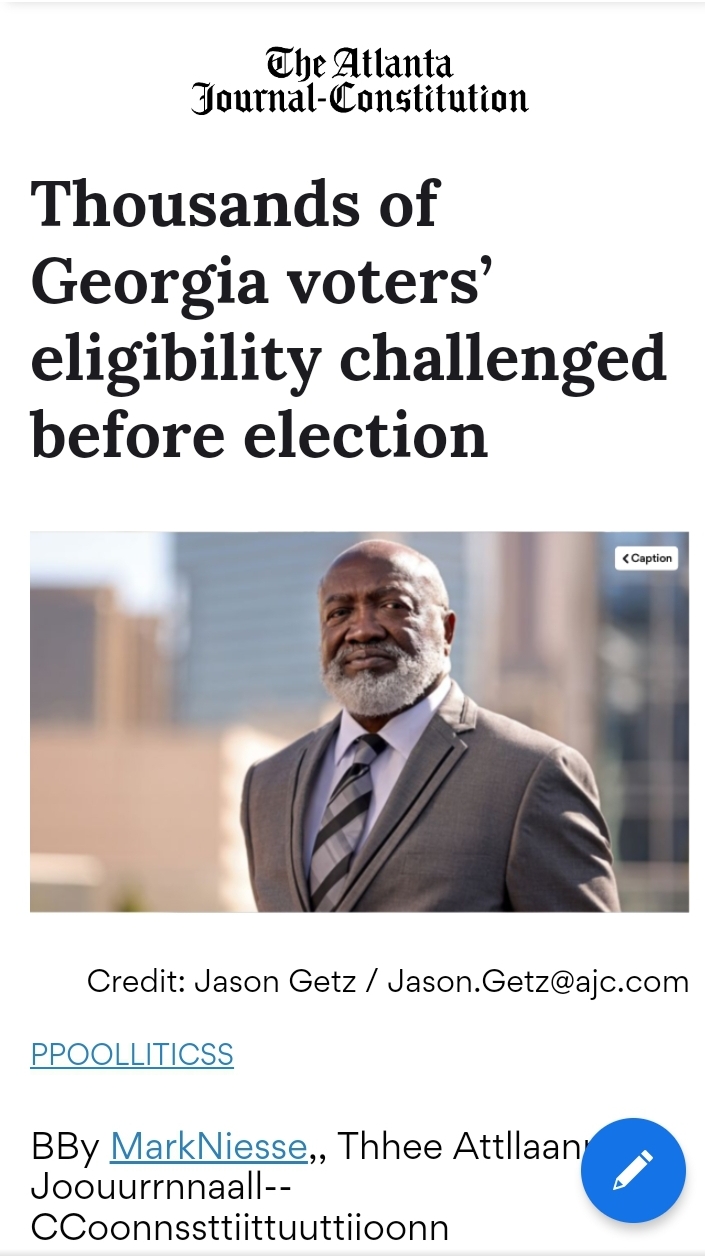
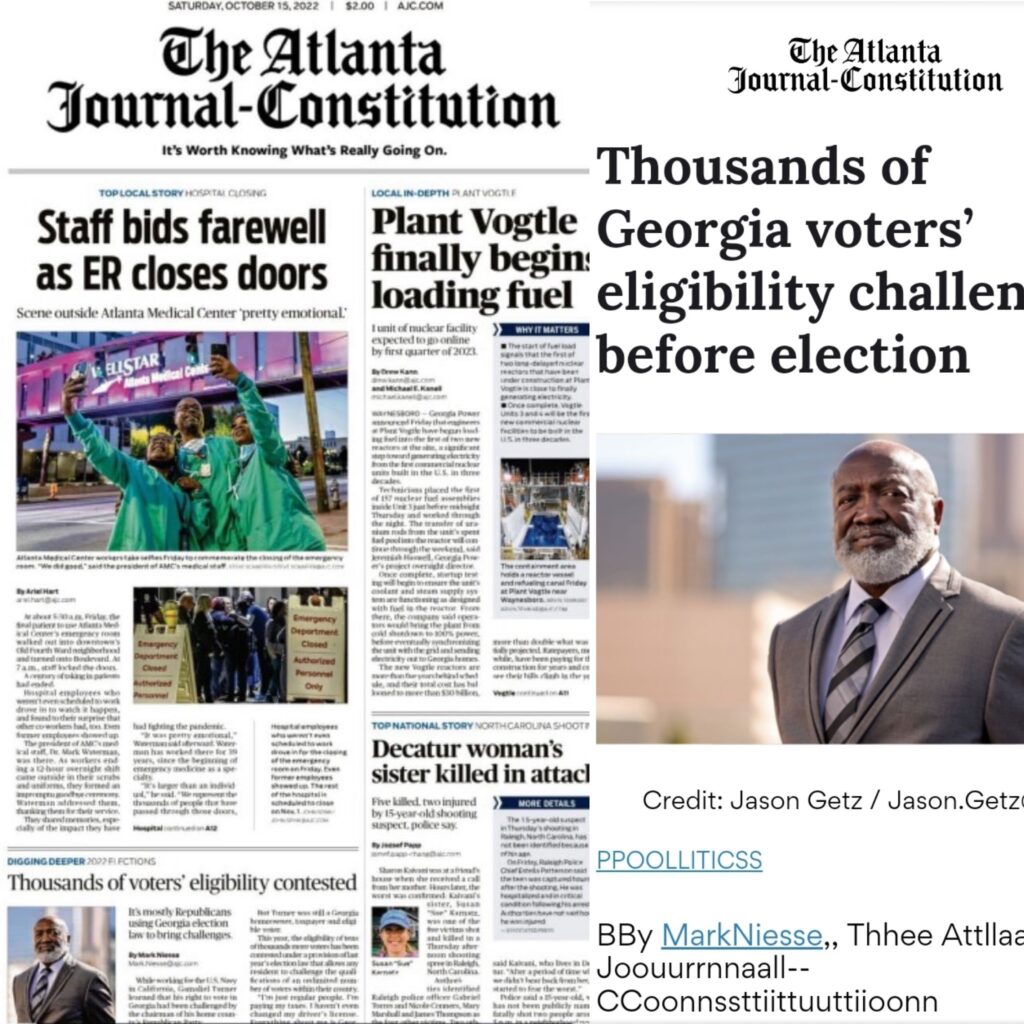

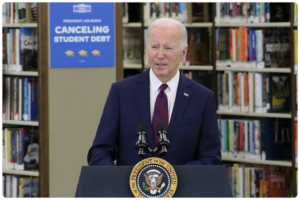
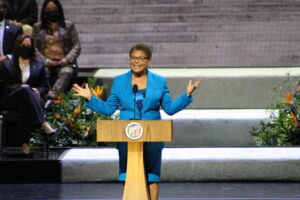

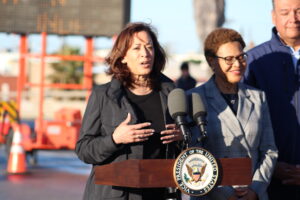


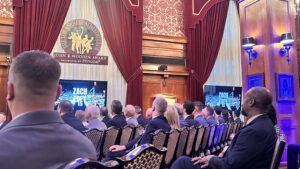
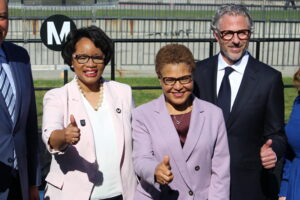



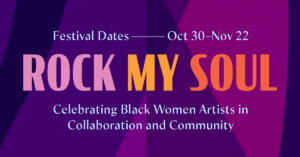

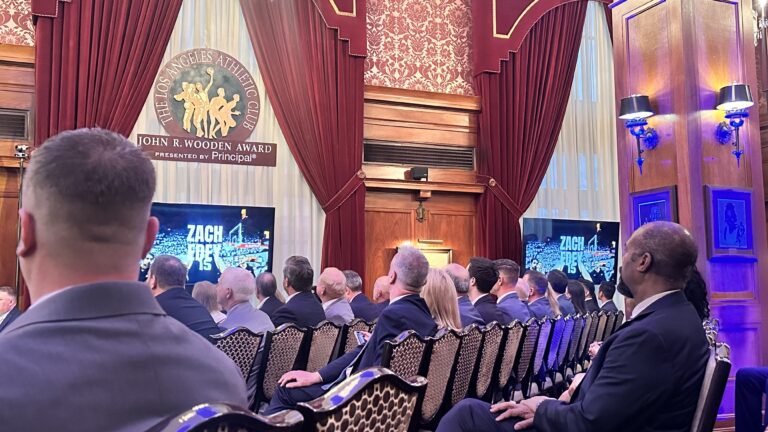
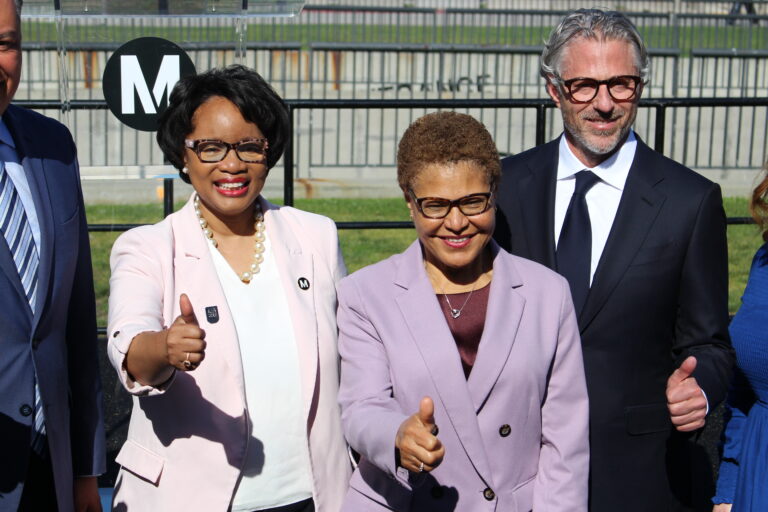




ByteDance Ltd.’s TikTok and Meta Platforms Inc.’s Facebook failed to suspend advertisements with “blatant” misinformation about when and how to vote in the United States midterm elections, according to an experiment conducted by researchers at human rights watchdog Global Witness and New York University’s Cybersecurity for Democracy. The researchers submitted 20 ads with inaccurate information to the platforms and found that TikTok approved 90% of them and Facebook let a “significant number” through, while YouTube was able to detect and reject all of them. (CNN)